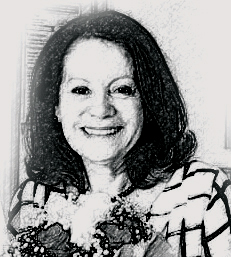

Sonia Ambrosio -
soniambrosio@gmail.com -
I am a strong advocate of education. It is not just about learning how to write and read, but to develop knowledge and skills in order to have a participatory role in society. Children and young adults growing up in the 21st century need to understand the full range of media available to them, both as a source of information and entertainment. It is also about understanding media power and its ability to generate effects.
Putting words and images together is an art that carries meaning, significance and influence. Media is a sophisticated tool with techniques used to programme our habits and trigger the way we look at the world. It is also very attractive: the time we spend with media messages increase rapidly and even more so with social media at the front of media exposure.
So, the border between the real world and the media world is becoming harder to discern. For that, I am a supporter of media education starting from primary schools.
When people develop degrees of media literacy — a synonym for media education — they will be able to distinguish information from knowledge. Information is composed of raw and unprocessed facts, while knowledge is the ability to make sense and give meaning to the raw facts, which can ignite all sorts of feelings from anger, to fear, lust and other emotions.
In a conversation with students on the role of media in society, several of them pointed out that the constant media coverage of the successful and the rich people create pressure on those less fortunate in the social and economic classes.
The explanation was that, society in general and the media, in particular, heighten the concept of acquisition such as buying posh cars, luxurious houses, expensive jewels, exotic holidays and fancy wedding parties while ignoring the circumstances the less educated and not successful people face.
Therefore, many of those who feel poorly represented turn to social media to vent their frustrations or highlight the problems the mainstream media ignores. With sarcasm, silly jokes and sometimes harmful comments, social media is becoming a gateway to voicing dissatisfaction.
So, having an adequate evaluation on how to use and interpret the meaning of a media message is not just a skill but a quality of knowledge. Early versions of media studies were based on theories that audience — readers and viewers — was passive and easily influenced by media content. Based on those theories, media content still plays a significant role in shaping understanding on issues, people, gender and politics.
But now we notice a turn, viewers and readers are no longer passive agents; they are producing media products — both factual and fictional- based on their own discernment. The media and technologies are having strong weight in how the youth are constructing their own identity.
Young people are constantly producing and sharing media as self-expression and reassurance of themselves as part of the world, mostly unaware of the ethical concerns. Consequently, media education becomes a vital element in the core curriculum, preferably from an early age.
Without doubt, decades-old media theories no longer apply to the media landscape; not just for media students, but for the society as well — simply because the child of today is born in a multi-media culture; from toddler, the child grows up playing digital devices and having his own presence on the web.
It is evident that the most avid media makers today are the young people. But creating and sharing media per se does not achieve the role and the significance that media have in society.
We all have a stage in which we feel comfortable interacting with the media. However, there is always room for improvement. Media education builds up social responsibility — and, at this stage, the persons not only ask, ‘what is best from my point of view, and why?’ but also are concerned with questions such as ‘what types of messages are best for others, and for society?’ These are challenges we can’t ignore.
Oman Observer is now on the WhatsApp channel. Click here



